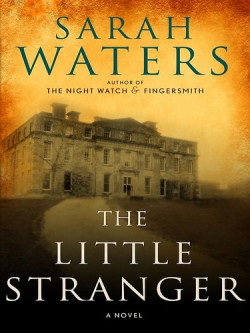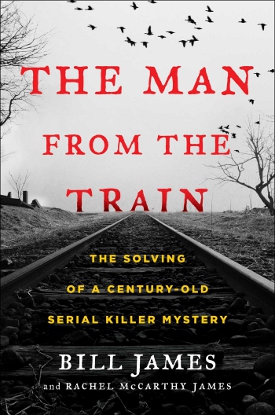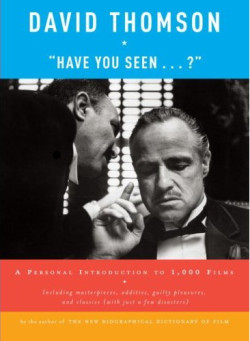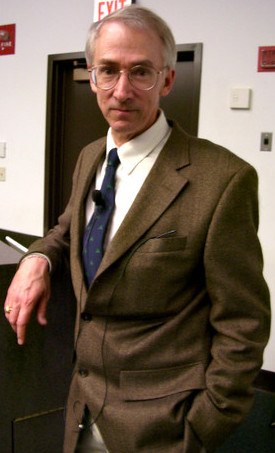 The narrator of The Little Stranger would tell you that this tale is about grave misfortune, not a haunted house. His name is Dr. Faraday, and in Sarah Waters’ agonizingly patient gothic novel set in post-World War II Britain, he has a dismissal available for any odd happening at Hundreds Hall. You’re tired. It’s an old house. Those must have been there for years. He seems the opposite of the classic unreliable narrator – he’s too reliable, and at points in the book he so tediously rules out the supernatural that you want some apparition to shove a hot poker up his ass. If this sounds like a criticism, it’s a mild one, as this is surely the effect that Waters sought, anatomical specificity aside. Faraday is so sane and logical that he has no credibility in the context of this story.
The narrator of The Little Stranger would tell you that this tale is about grave misfortune, not a haunted house. His name is Dr. Faraday, and in Sarah Waters’ agonizingly patient gothic novel set in post-World War II Britain, he has a dismissal available for any odd happening at Hundreds Hall. You’re tired. It’s an old house. Those must have been there for years. He seems the opposite of the classic unreliable narrator – he’s too reliable, and at points in the book he so tediously rules out the supernatural that you want some apparition to shove a hot poker up his ass. If this sounds like a criticism, it’s a mild one, as this is surely the effect that Waters sought, anatomical specificity aside. Faraday is so sane and logical that he has no credibility in the context of this story.
 Bill James’ The Man from the Train is an ugly book, but for the most part you shouldn’t read that as a criticism. It’s ugly in three ways, and two of those were certainly unavoidable given the subject – the murders of more than 100 people in the early part of the 20th Century. But the third way could have been mitigated to at least some degree.
Bill James’ The Man from the Train is an ugly book, but for the most part you shouldn’t read that as a criticism. It’s ugly in three ways, and two of those were certainly unavoidable given the subject – the murders of more than 100 people in the early part of the 20th Century. But the third way could have been mitigated to at least some degree.
 One thing you might notice picking up Daniel Woodrell’s novel Winter’s Bone is how thin it is – less than 200 pages. And when you start reading, you might be struck that it’s been carved incredibly lean. While relatively plainspoken, the sentences are dense, with a mix of dialect from the Ozarks and artfully turned idioms that feel instantly right. One has to sip Woodrell’s language. “I do like to make it apparent to the reader that you need to probably read everything,” Woodrell said in a phone interview in April. “‘I won’t put in any flab, but you have to read what’s here’ is kind of my deal with the reader. … Pay attention to the sentences.”
One thing you might notice picking up Daniel Woodrell’s novel Winter’s Bone is how thin it is – less than 200 pages. And when you start reading, you might be struck that it’s been carved incredibly lean. While relatively plainspoken, the sentences are dense, with a mix of dialect from the Ozarks and artfully turned idioms that feel instantly right. One has to sip Woodrell’s language. “I do like to make it apparent to the reader that you need to probably read everything,” Woodrell said in a phone interview in April. “‘I won’t put in any flab, but you have to read what’s here’ is kind of my deal with the reader. … Pay attention to the sentences.” “He braced himself for this big fucking scream.” That’s the final sentence of James Ellroy’s American Tabloid, the first book in the “Underwold USA” trilogy that concluded with the release of Blood’s a Rover last week. It’s hard to believe that more than 14 years passed between these novels, because the memory of reading that line the first time feels a lot fresher than 1995. It’s nearly seared into my brain.
“He braced himself for this big fucking scream.” That’s the final sentence of James Ellroy’s American Tabloid, the first book in the “Underwold USA” trilogy that concluded with the release of Blood’s a Rover last week. It’s hard to believe that more than 14 years passed between these novels, because the memory of reading that line the first time feels a lot fresher than 1995. It’s nearly seared into my brain. The narrator of The Little Stranger would tell you that this tale is about grave misfortune, not a haunted house. His name is Dr. Faraday, and in Sarah Waters’ agonizingly patient gothic novel set in post-World War II Britain, he has a dismissal available for any odd happening at Hundreds Hall. You’re tired. It’s an old house. Those must have been there for years. He seems the opposite of the classic unreliable narrator – he’s too reliable, and at points in the book he so tediously rules out the supernatural that you want some apparition to shove a hot poker up his ass. If this sounds like a criticism, it’s a mild one, as this is surely the effect that Waters sought, anatomical specificity aside. Faraday is so sane and logical that he has no credibility in the context of this story.
The narrator of The Little Stranger would tell you that this tale is about grave misfortune, not a haunted house. His name is Dr. Faraday, and in Sarah Waters’ agonizingly patient gothic novel set in post-World War II Britain, he has a dismissal available for any odd happening at Hundreds Hall. You’re tired. It’s an old house. Those must have been there for years. He seems the opposite of the classic unreliable narrator – he’s too reliable, and at points in the book he so tediously rules out the supernatural that you want some apparition to shove a hot poker up his ass. If this sounds like a criticism, it’s a mild one, as this is surely the effect that Waters sought, anatomical specificity aside. Faraday is so sane and logical that he has no credibility in the context of this story. David Thomson’s “Have You Seen … ?” A Personal Introduction to 1,000 Films is the book that I’d been waiting for from the author of the Biographical Dictionary of Film. And I can’t imagine that I’m alone among his frustrated fans in being disappointed that his new tome reveals that the faults of his seminal, agitating Dictionary lie with the author and not with the constraints of that book.
David Thomson’s “Have You Seen … ?” A Personal Introduction to 1,000 Films is the book that I’d been waiting for from the author of the Biographical Dictionary of Film. And I can’t imagine that I’m alone among his frustrated fans in being disappointed that his new tome reveals that the faults of his seminal, agitating Dictionary lie with the author and not with the constraints of that book. In April, Rick Moody fulfilled a fantasy that many artists surely have: He delivered a pie to the face of one of his critics. Moody is probably best known as the author of the 1994 novel from which director Ang Lee’s The Ice Storm was adapted. But he’s also famous in some circles for nine words written about him: “Rick Moody is the worst writer of his generation.”
In April, Rick Moody fulfilled a fantasy that many artists surely have: He delivered a pie to the face of one of his critics. Moody is probably best known as the author of the 1994 novel from which director Ang Lee’s The Ice Storm was adapted. But he’s also famous in some circles for nine words written about him: “Rick Moody is the worst writer of his generation.” Some marriages come with two microwave ovens or two sets of dishes. Ours did, too, but it also came with two copies of Infinite Jest. This speaks less to our reading habits than our book-buying habits. I do not believe that Bride of Culture Snob has read David Foster Wallace’s doorstop from 1996. I didn’t get far enough to invoke the 69-page rule, which dictates that I must finish a book once I’ve gotten to that point. So I won’t tell you – now that he’s killed himself at age 46 – that I devoured every word he wrote, or that I’ve memorized favorite passages, or that I’ve ranked my favorite Wallace foot/end notes.
Some marriages come with two microwave ovens or two sets of dishes. Ours did, too, but it also came with two copies of Infinite Jest. This speaks less to our reading habits than our book-buying habits. I do not believe that Bride of Culture Snob has read David Foster Wallace’s doorstop from 1996. I didn’t get far enough to invoke the 69-page rule, which dictates that I must finish a book once I’ve gotten to that point. So I won’t tell you – now that he’s killed himself at age 46 – that I devoured every word he wrote, or that I’ve memorized favorite passages, or that I’ve ranked my favorite Wallace foot/end notes. In the fifth chapter of his 2007 book Evolution for Everyone: How Darwin’s Theory Can Change the Way We Think About Our Lives, David Sloan Wilson writes: “It turns out that something very similar to my desert-island thought experiment has been performed on chickens by a poultry scientist named William Muir.” That probably sounds odd. It will likely sound even odder when you find out what the desert-island thought experiment is: a set of three hypothetical situations to explore human morality through the lens of evolution.
In the fifth chapter of his 2007 book Evolution for Everyone: How Darwin’s Theory Can Change the Way We Think About Our Lives, David Sloan Wilson writes: “It turns out that something very similar to my desert-island thought experiment has been performed on chickens by a poultry scientist named William Muir.” That probably sounds odd. It will likely sound even odder when you find out what the desert-island thought experiment is: a set of three hypothetical situations to explore human morality through the lens of evolution. We were in the play area of the department store – most likely building things with Legos – and two girls were taking great delight in excluding me. They were speaking a language I didn’t understand, and it wasn’t exactly a private conversation. They would glance my way during their exchange and occasionally laugh. I felt mocked, which was exactly what they wanted. They were speaking Pig Latin, I figured out later. Of course, Pig Latin is only effective as a private language through a certain age, but we update and upgrade our codes throughout our lives.
We were in the play area of the department store – most likely building things with Legos – and two girls were taking great delight in excluding me. They were speaking a language I didn’t understand, and it wasn’t exactly a private conversation. They would glance my way during their exchange and occasionally laugh. I felt mocked, which was exactly what they wanted. They were speaking Pig Latin, I figured out later. Of course, Pig Latin is only effective as a private language through a certain age, but we update and upgrade our codes throughout our lives.